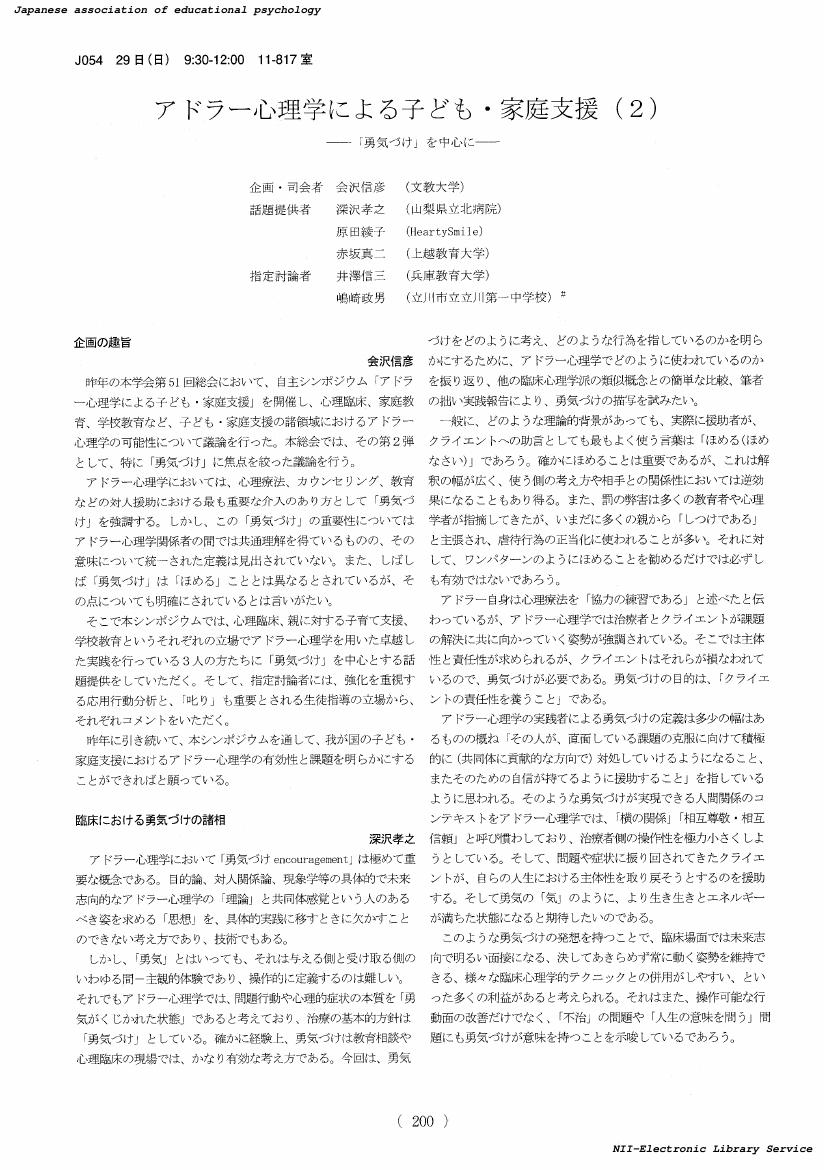- 著者
- 会沢 信彦 深沢 孝之 原田 綾子 赤坂 真二 井澤 信三 嶋崎 政男
- 出版者
- 一般社団法人 日本教育心理学会
- 雑誌
- 日本教育心理学会総会発表論文集 第52回総会発表論文集 (ISSN:21895538)
- 巻号頁・発行日
- pp.200-201, 2010 (Released:2017-03-30)
1 0 0 0 OA 里親の権利義務:児童福祉法と民法の架橋
里親は児童福祉法上の里親委託によってその身分が発生するものであり、そのケアの性質は本来公的なものである。しかし日本での実態としては、里親は、疑似養子縁組的・私的養育として実践されることが多かった。このことが里親の権利義務をあいまいなものにしてきたと考えられる。本研究者は、アメリカの制度を手掛かりとして、社会的養護の目標を、①親と暮らせない子どものために、それぞれの子どものニーズに合った質の高い代替的ケアを提供すること、②子どもがその最善の利益になるかたちで社会的養護を出ていくために長期的目標を立てそれに向けたサービスを行うこととし、この二つの目標達成に必要な里親の権利義務について検討を行った。
1 0 0 0 OA 児童虐待と子育て支援
- 著者
- 原田 綾子
- 出版者
- 日本法社会学会/有斐閣
- 雑誌
- 法社会学 (ISSN:04376161)
- 巻号頁・発行日
- vol.2006, no.65, pp.217-241,258, 2006-09-30 (Released:2012-06-20)
- 参考文献数
- 58
Every child protection system has two primary goals: to ensure the safety of children and to preserve the parent-child relationship. However, in the United States especially, the juxtapositioning of these two goals are thought to bring about a serious dilemma. According to the liberal thought, which places much value on the autonomy and self-reliance, state intervention to the family must be kept at a minimum. It therefore follows that parents do not get any support unless they are found to be abusive to their children. Under this ideology, parents are blamed in cases of child abuse because it is thought that the parents hold full responsibility for raising their own children. Parental rights are terminated to keep the child safe if the parent (s) cannot improve their parental abilities after a temporary period of assistance. Some possibilities for overcoming the problems of these contrasting alternatives can be found in the arguments of E. F. Kittay and M. Minow. They reconstruct liberal theory using the concepts of "dependency" and "relationship" and argue that society should acknowledge the social value of the parent-child relationship and support parents. If generous support for parents can reduce the parental stress, it will help prevent abuse from the outset, or at least prevent its recurrence. The latest practices on this theory can be appreciated to have broadened the possibility of concurrently realizing the two original goals: the safety of children and the preservation of the parent-child relationship.
